I’ve already potty trained three boys, and we’re right around the corner from starting training with my fourth. He’ll be two this November and is already showing signs that he’s on the verge of being ready to start potty training. With all my trial and error attempts, it was time to lay down a basic Beginner’s Guide to Potty Training to help those of you tackling potty training for the first time (or again!).
This post is sponsored by Pampers. Affiliate links are included below. All opinions are my own.
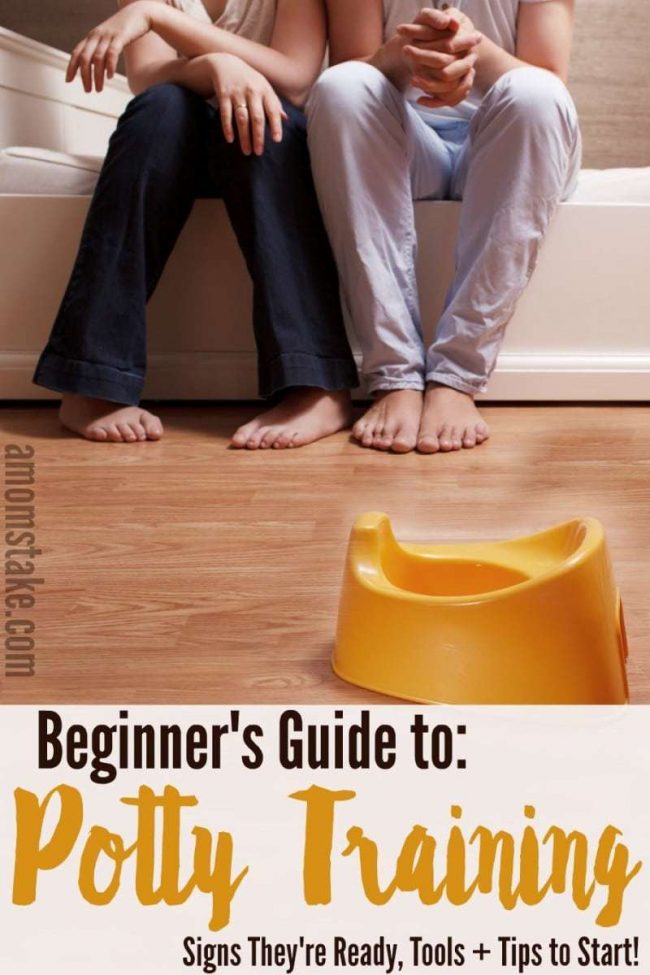
Signs they may be ready:
Watch for some of these signs as indicators that your child may be ready to get started. Most children start somewhere between 18-24 months.
- Don’t want their diaper – If your child is ripping off their diaper or running over to you with a clean diaper whenever they want to be changed, there’s a good chance they are ready to get started!
- Potty Words – When your child can communicate about needing to go or that they have gone with some early potty words like “pee-pee” or “poo-poo” that’s a great indicator as well.
- Dry diapers for naps/bedtime – Whether or not your child is communicating about their need to go, if they wake up dry from naps or bedtime with a dry diaper, they are holding in their bladder until they are awake which is a great step in the potty training process, especially for night training.
- Can understand and follow directions – If you have a child that loves to follow along and do any of the steps you tell them such as asking them to pick up a toy and carry it to their toy basket or going to the shoe shelf to collect their shoes, then you can start showing them the bathroom process, too.
My nearly 2 year old has been running over to me carrying a new clean diaper and pointing to his diaper telling me “ewwwww” all this week. It’s exciting to see the shift in his behavior in just the past few weeks as he’s begun to recognize the need for a change and understand what’s happening with his body. The first steps we always take is getting the potty trainee interested in the potty and familiar with it as it can be a bit overwhelming at first.
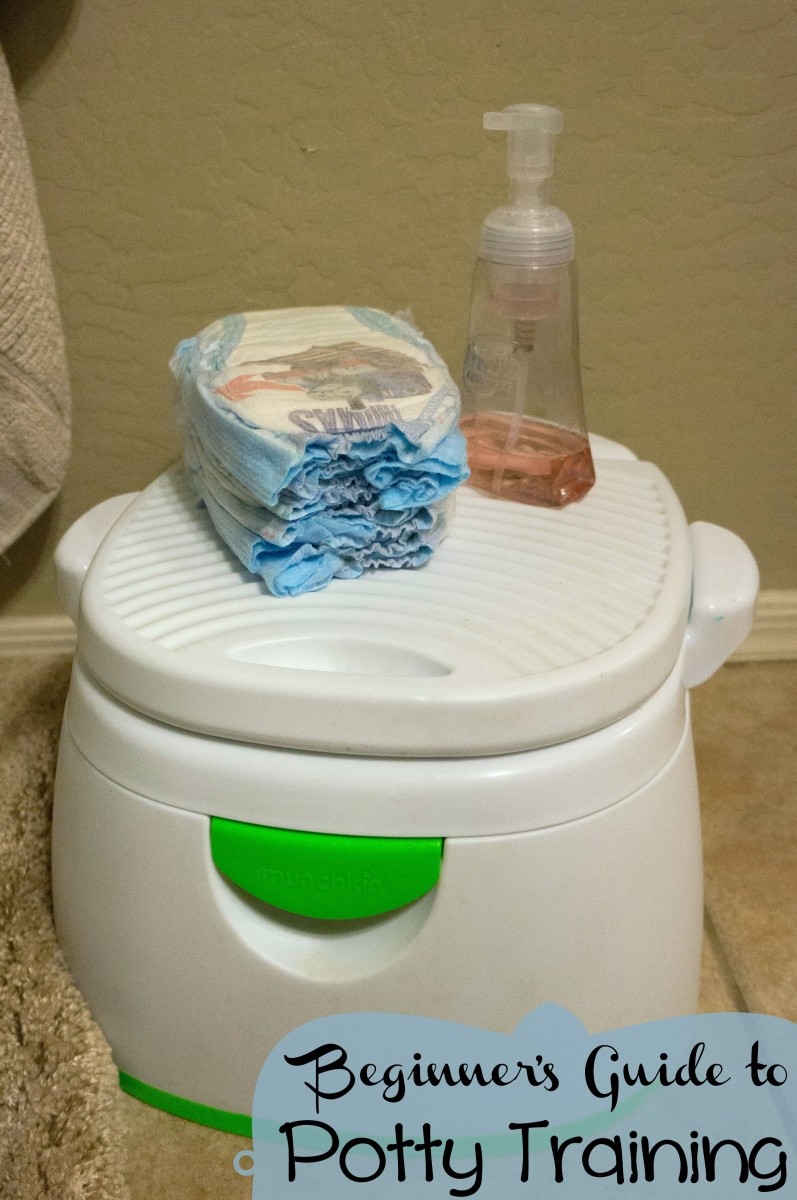
Gathering our Potty Gear:
To make the potty training process smoother, I get prepared with several essential supplies to help during the process.
- Potty chair (this one is awesome and only $10!) or a toilet seat insert
- Step stool
- Flushable wipes
- Foaming hand soap
- Stickers or other rewards
- Pampers Easy Ups
- Underwear
Have your gear on hand before you begin the process and have the new potty gear out and in the open so your little one can get used to it. As we are introducing the potty, we make sure to make it really casual without even much of a mention until the little one points out the new bathroom additions. My boys have always loved showing off what they found and when we don’t go overboard trying to make it a forced transition, it all goes much more smoothly.
First Potty Training Steps & Tips:
Potty Trips: One of the first steps we take, after pulling out our potty training equipment, is to take a trip to check out the potty every day or using those words with our son to see if he’s ready and would like to try sitting on the potty, even if nothing happens when he takes a seat. Just trying out the potty chair is the first big step on the process, especially if you’re using a toilet seat insert as the big potty can seem scary.
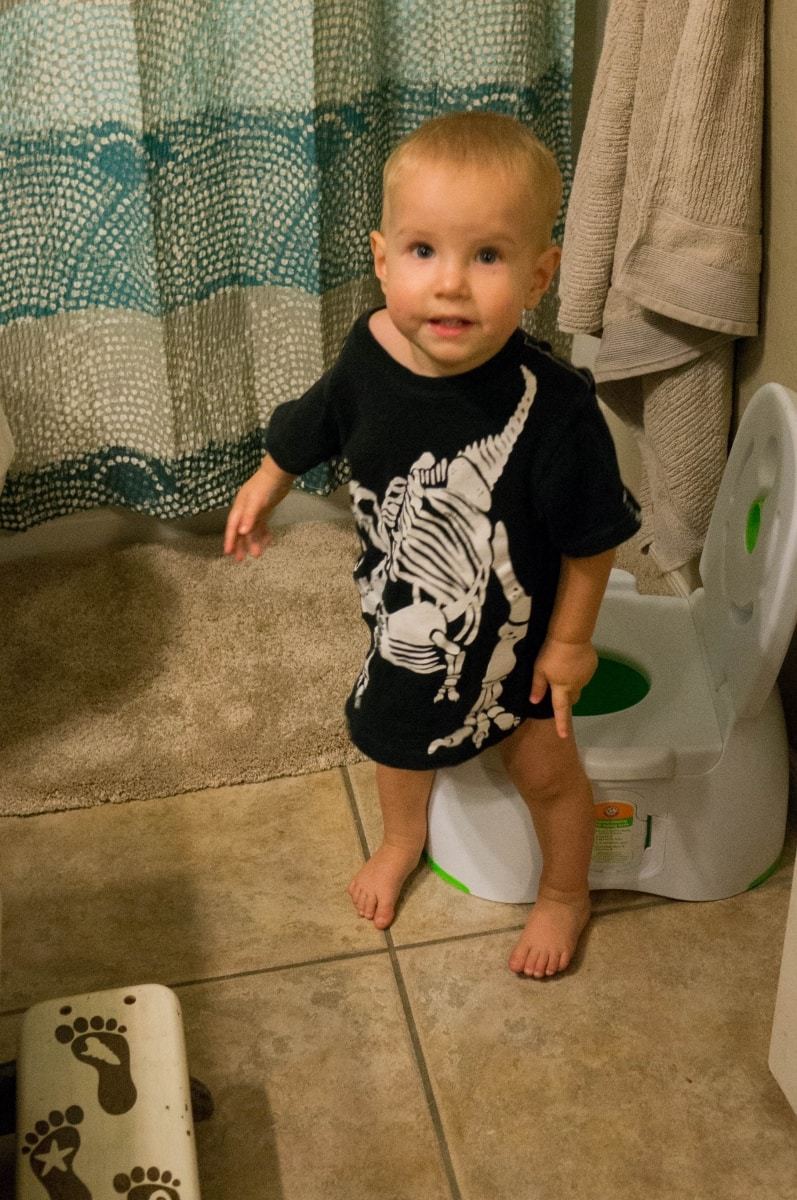
Rewards: I’m a big fan of small and simple rewards for their progress along the way – whether that be a sticker chart, candy, a few goldfish, a new inexpensive toy, you name it. I usually do stickers for the smaller progress goals and a candy or car or something similar when they are successful for #2 or their first time going #1. The point it just to show your child in a tangible way that you are proud of them and they did something great!
Clean-Up: A big part of the potty training process is making sure you also teach your child to wipe, flush, and wash their hands. These skills are something they’ll need to master while they’re in these early learning steps so they won’t struggle as they become more independent in the bathroom. We LOVE flushable wipes to make cleaning up bottoms easier as you transition to toilet paper. A step stool is absolutely key to help your child reach the sink and lather up with foaming hand soap, which makes washing hands so much easier and more fun for little hands.
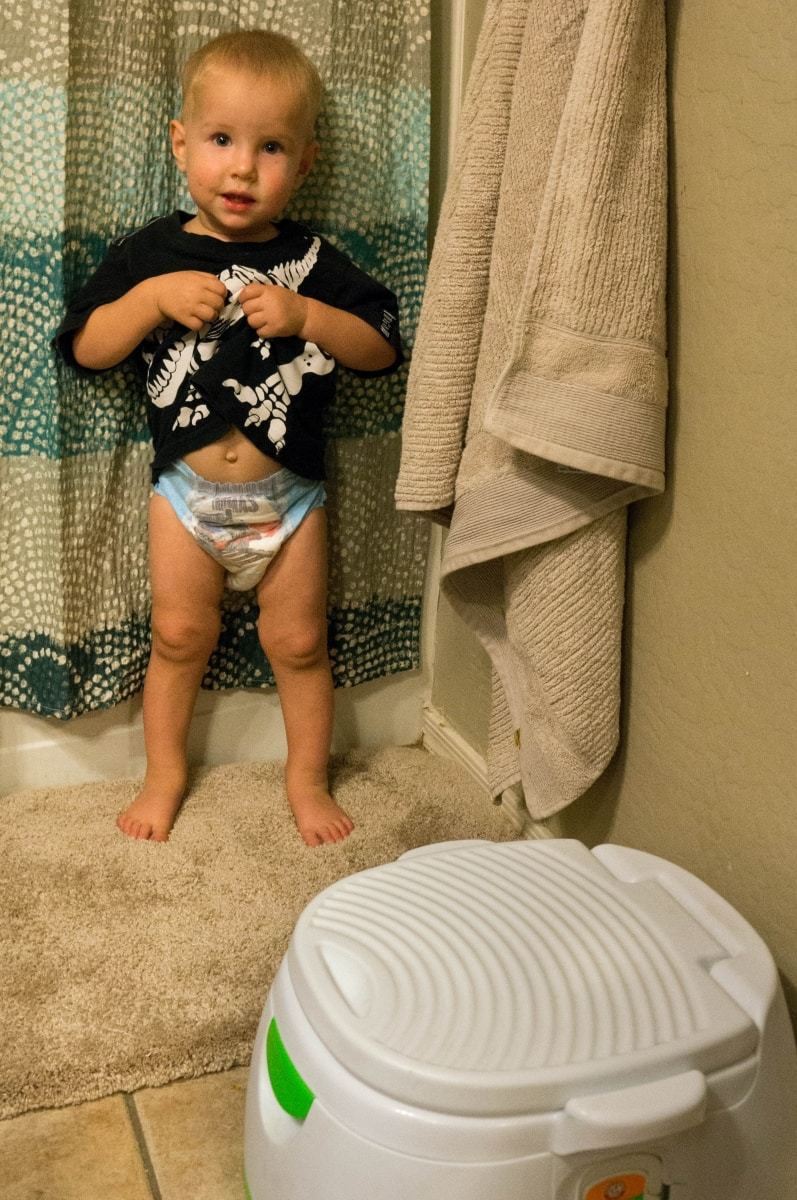
Easy Ups: Pampers is taking care of the most frustrating part of potty training with their Easy Ups training pants. They offer protection while not feeling like a traditional diaper. They can help you easily transition your child from diapers on through potty training and eventually to underwear without endless pairs of wet/accident underwear to deal with. Plus, facing an accident can be frustrating and discouraging to both parents and the potty training toddler so Easy Ups can smooth those frustrations.
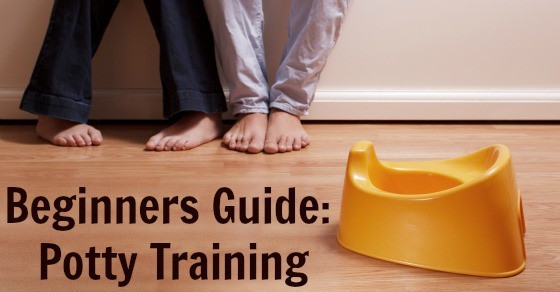

Sarah L
Saturday 20th of September 2014
Looks like good tips. Never had kids so never had to go through this.
Sue Hull
Saturday 20th of September 2014
You have every tip I've used.I started my daughter at about 2 also.For #1 she got sticker and #2 M&Ms.Then she'd do both so I'd get her a special treat.These are some great tips for new moms.My daughter has all this to look forward to.Lol!
Thomas Murphy
Saturday 20th of September 2014
Great tips!
Tim
Saturday 20th of September 2014
Consistency and rewards are great tools. Thanks!
Sandra Gray
Saturday 20th of September 2014
Great tips! Potty training techniques have come a long way since I was young. Back then, there was a recommended age and the child was pretty much forced to do it whether they were ready or not, and if they didn't succeed, they were forced even more. Unfortunately those older techniques still hold among some people who don't bother to educate themselves more about it or hold onto old ways just because they're old ways.